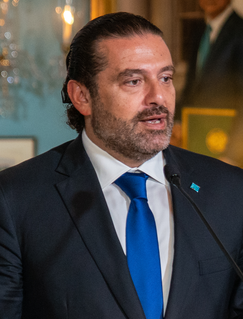A Quote by Howard Zinn
The UN should arrange, as US forces leave, for an international group of peacekeepers and negotiators from the Arab countries to bring together Shiites, Sunnis and Kurds, and work out a solution for self-governance that would give all three groups a share in political power. Simultaneously, the UN should arrange for shipments of food and medicine, from the United States and other countries, as well as engineers to help rebuild the country.
Quote Topics
Arab
Arrange
Bring
Countries
Country
Engineers
Food
Forces
Give
Governance
Group
Groups
Help
International
Kurds
Leave
Medicine
Other
Other Countries
Out
Peacekeepers
Political
Political Power
Power
Rebuild
Self
Share
Should
Simultaneously
Solution
States
Three
Together
United
United States
Us
Well
Work
Work Out
Would
Related Quotes
Nation building is our central task, both in Afghanistan and in Iraq. And states, nations can't just be built with military power. Despite all difficulties, it's very inspiring to see how the Kurds, the Arab Sunnis and the Shiites are coming together here, how they're jointly defining the basis on which their state is to be built, the political course this state will pursue and who is to receive which cabinet positions.
In the past when a country became as powerful as the United States, other countries would band together to clip its wings. But that isn't happening now and I don't think it's not going to happen, because other countries are not threatened by us, and they secretly appreciate the services that we provide, even if they don't usually say so.
The tragic reality is that very few sustainable systems are designed or applied by those who hold power, and the reason for this is obvious and simple: to let people arrange their own food, energy and shelter is to lose economic and political control over them. We should cease to look to power structures, hierarchical systems, or governments to help us, and devise ways to help ourselves.
To speak only of food inspections: the United States currently imports 80% of its seafood, 32% of its fruits and nuts, 13% of its vegetables, and 10% of its meats. In 2007, these foods arrived in 25,000 shipments a day from about 100 countries. The FDA was able to inspect about 1% of these shipments, down from 8% in 1992. In contrast, the USDA is able to inspect 16% of the foods under its purview. By one assessment, the FDA has become so short-staffed that it would take the agency 1,900 years to inspect every foreign plant that exports food to the United States.
Toward the middle and end of the Fifties, West European countries became somewhat more important as providers of aid to underdeveloped countries. It was partly due to the prodding of the United States that these countries, as they regained economic viability, should shoulder their share of the aid burden.
By the end of the 1960s, the United States owned more than half of the Indian rupee money supply, and that had been acquired through food aid. So I think it's very interesting to see the very long history of how sovereignty and food go together. When some countries remove another country's ability to feed itself, it is a very powerful tool. Imperialist countries, like the United Kingdom, like the United States, have used it for centuries.
Many European countries are fascinated with minorities from the United States. They still see this country as a world power and they covet that power...I was approached by a professor once at the Sorbonne in Paris and asked about racism in this country, and when I reflected on racism on the streets of Paris - you know, I'd be considered an Arab there -well, she didn't want to address that...It just goes to show it was easier for Europeans to study racism in the United States than it is from within the belly of the beast.
There is something very consistent about governance in the Arab world. Among the Arab countries today in which there is a modicum of internal stability, each is controlled by an Arafat-type figure - an anti-democratic strongman who is able to crush all challenges to his authority. Likewise, among those Arab countries that aren't ruled by a despot, the political dynamic is also consistent: In Lebanon, Iraq, and now Gaza, sectarian violence is the dominant form of political expression.








































